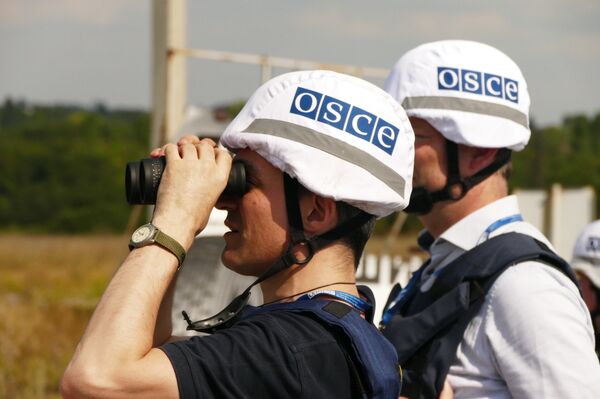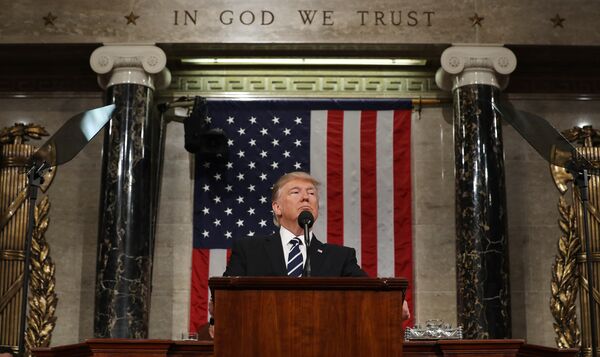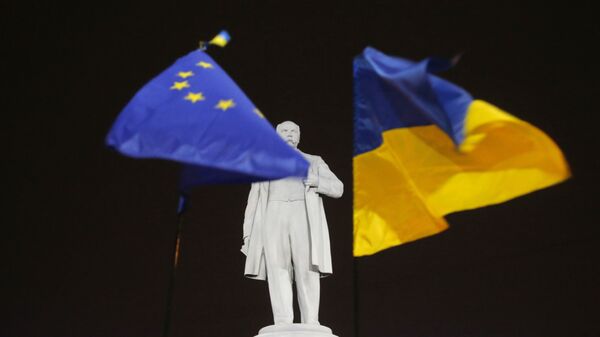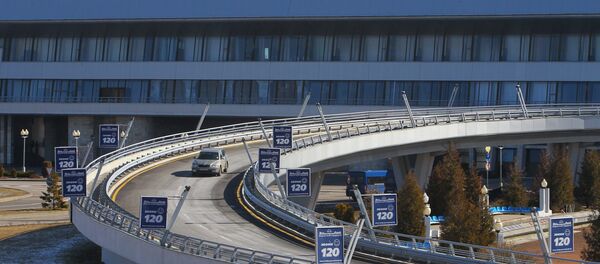Agreement was reached between the European Council and Parliament in a single meeting, an indication of the EU's zeal for integrating Ukraine into European cultural, economic and political structures.
Swift endorsement by Member States for #Ukraine Visa Liberalisation means on track for entry into force in June
— EU2017MT (@EU2017MT) March 2, 2017
Once formalized, Ukrainian citizens will be able to travel to the EU without a visa for a period of up to 90 days. The deal is identical to the regulations governing Georgia's visa-free agreement with the EU, adopted February 27.
Ukrainian President Petro Poroshenko on Twitter described the decision on the visa-free regime as "long-awaited in Ukraine."
Important step on the road to a decision that is long-awaited in Ukraine! Now it`s time for EU Council and the European Parliament to decide
— Петро Порошенко (@poroshenko) February 28, 2017
It is as yet unclear how Moscow will respond to the move. Despite worsening relations between Russia and Ukraine in the wake of the 2014 Maidan coup and increasing brutality against local pro-Russian rebels in eastern Ukraine, there is no visa regime in place between the two countries.
A clue may lie in the Kremlin's response to Belarus' move to institute visa-free entry for citizens of 80 countries, including EU Member States and the United States. Shortly after Minsk announced the plan, Russia vowed to establish border zones in the three regions along the frontier between the two countries.
While reported in the Western media as the first step towards eventual visa-controls between the two countries — the pair form the Union State, established in 1999, which allows for free passage across their common border — Russian officials have made clear there are no plans to introduce such a regime. Instead, the measure is aimed at preventing third-country nationals from "potentially alarming" countries illegally entering Russian territory — an understandable precaution to take in light of the Belarusian measures, given the two countries share a 1,000 kilometer long border, 71 percent of the total length of the United Kingdom.
On this basis, one may question why Carmelo Abela, Maltese Minister for Home Affairs and National Security, spoke of the EU's "strong commitment" to visa-free travel for Ukrainian citizens, and indeed find his claim that Ukraine "had met the necessary conditions" for a visa free regime even more bewildering. Typically, visa-free agreements are not extended to countries engaged in conflicts, internal or otherwise — quite the reverse.
One answer could be Russian President Vladimir Putin's February decree, which recognizes identity and travel documentation issued to citizens of Donetsk and Lugansk. Explaining the move, spokespeople said the decree had been issued for "humanitarian" reasons — after the eruption of the civil, over a million Donbass residents applied for refugee status and temporary shelter in Russia, and more than a million fled Ukraine for her eastern neighbor, of whom approximately 600,000 decided to settle permanently.

Another explanation could be the EU scrambling to pick up the slack in relations between Ukraine and the West, produced by President Donald Trump's revision of US policy towards Russia.
A meeting between Ukraine President Petro Poroshenko and Trump, expected to take place in February, never materialized — instead, the leaders spoke briefly via phone, and details of the call have not been disclosed by either side. Moreover, Washington's patronage for Kiev is evidently running out — the latest Pentagon defense spending bill slashes military aid to Kiev faces from $350 million to $150 million.

In any event, there are suggestions the EU's newfangled visa regime with Ukraine could be a red herring. Its terms and conditions, barely mentioned in official promotional material, allow the EU to 'switch off' visa-free travel at a moment's notice.




